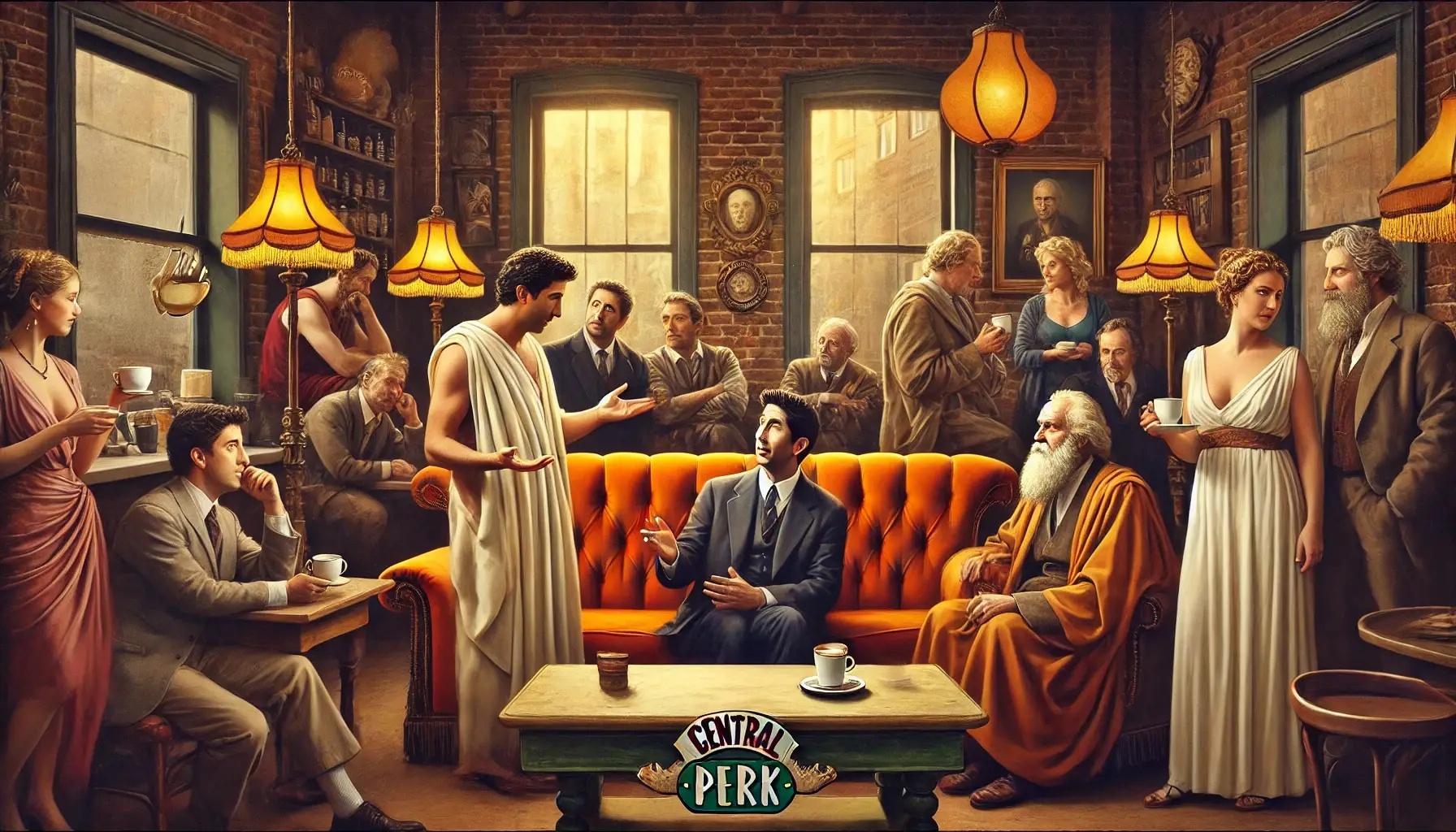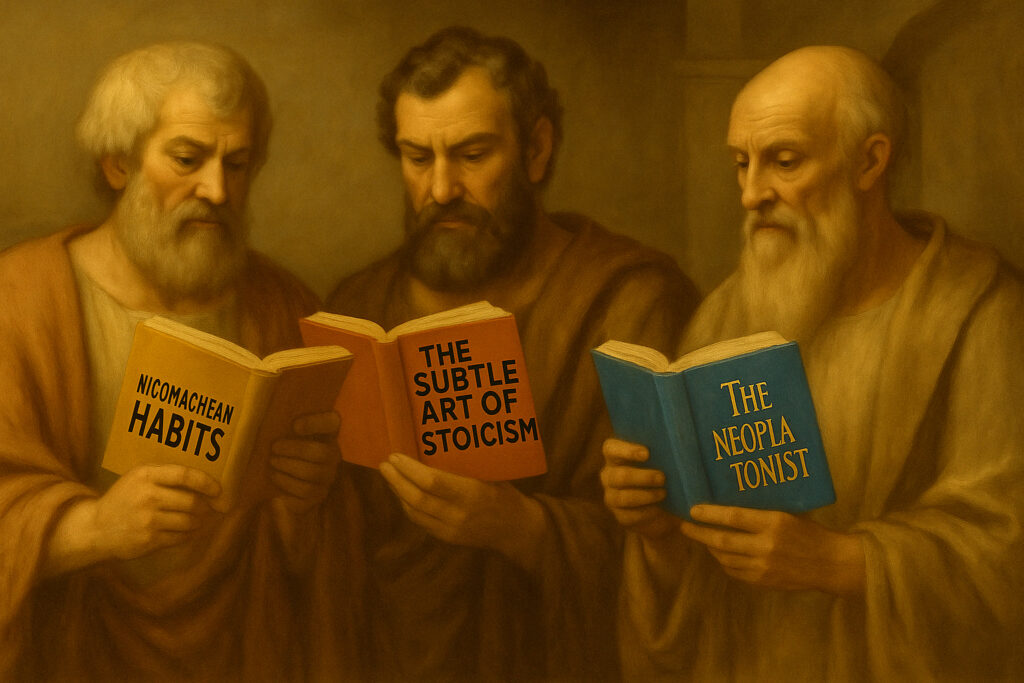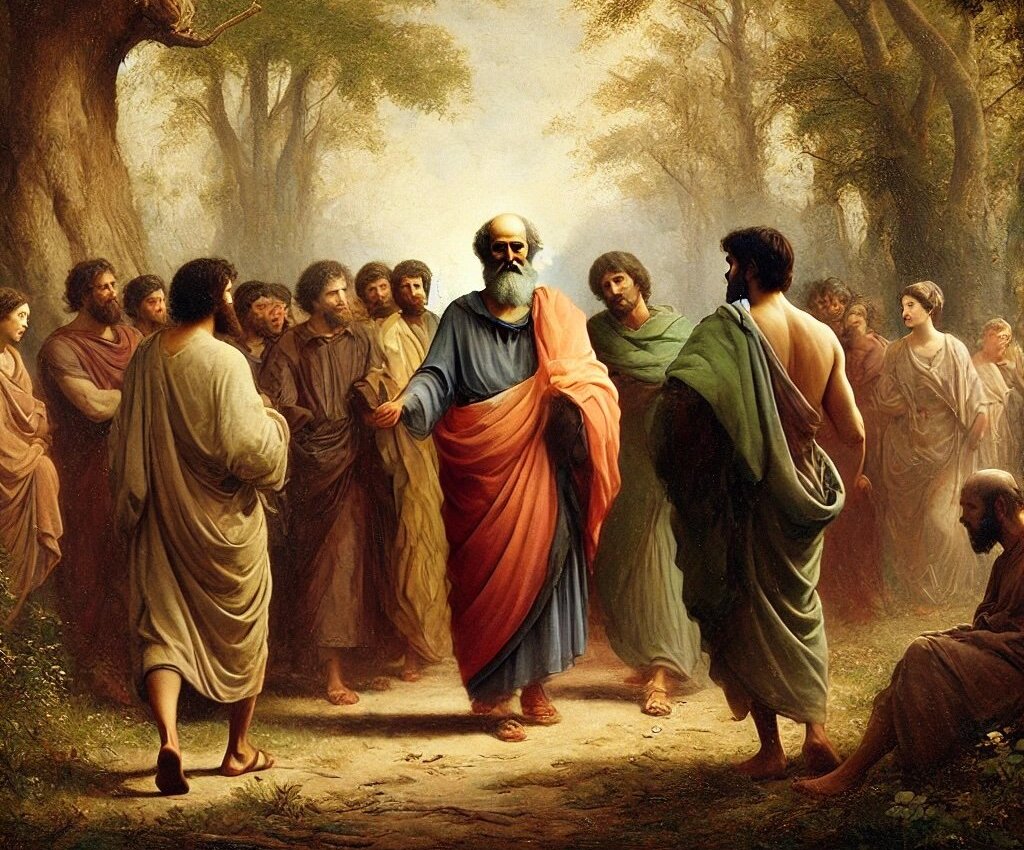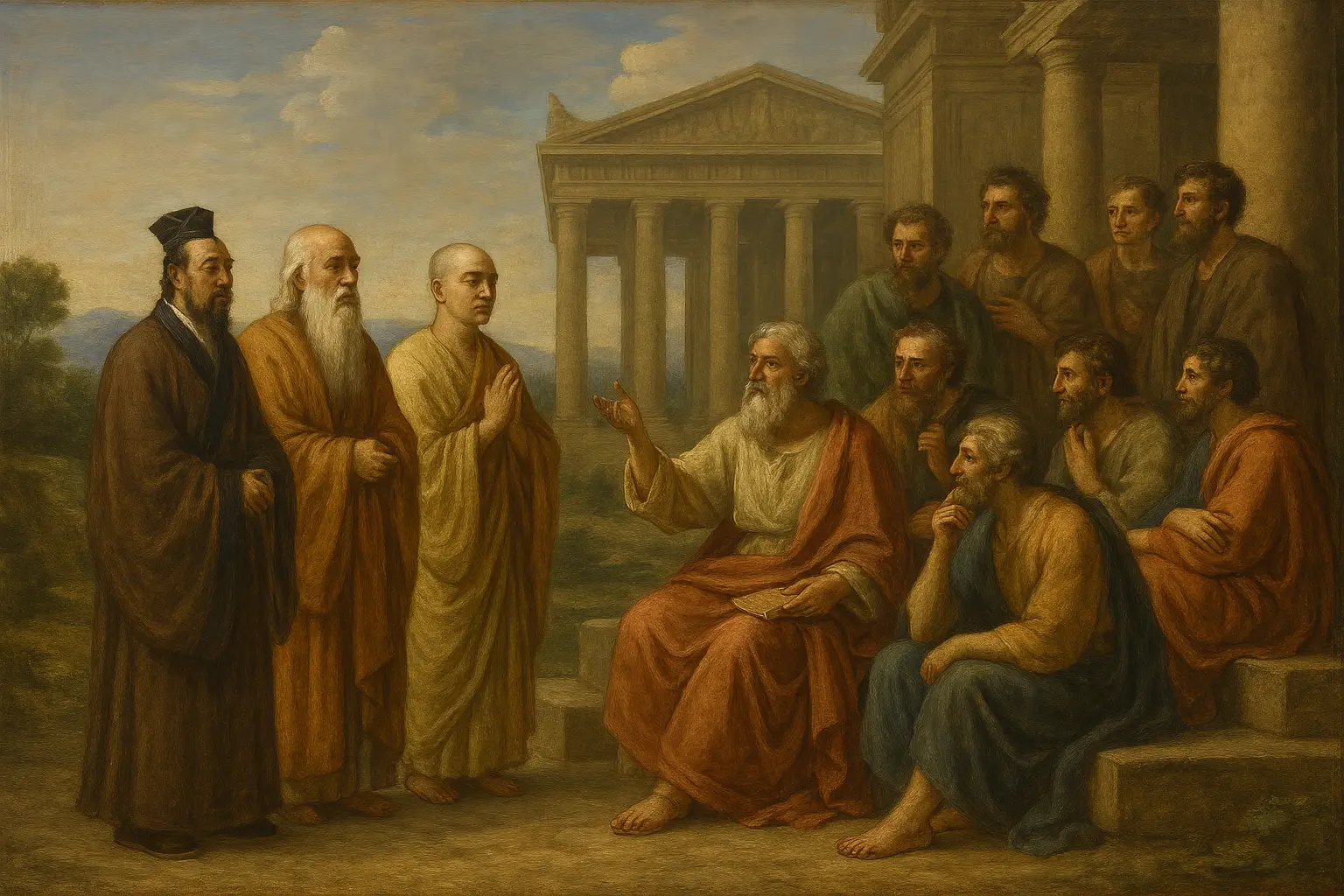Now Reading: What Ross from Friends Can Teach You About Philosophy
-
01
What Ross from Friends Can Teach You About Philosophy

Back when I was studying Philosophy in high school, our class consisted of two kinds of students: those who were interested in philosophy and those who liked to watch TV during school hours. This might come as a surprise to some people, as we often associate Philosophy lessons with a bunch of scruffy old Greek dudes. And to be fair, the names of Socrates and friends popped up regularly, but they were always sharing the stage with the likes of Keanu Reeves, Anthony Perkins, and David Schwimmer.
And though it might be hard to imagine Ross Geller from Friends rivaling the philosophical insights of Plato, Nietzsche, or Schopenhauer, he kinda did. And I’m not talking about the age-old philosophical question of whether Ross and Rachel were on a break (they were!!!). Hear me out!
Get to the Plot
Philosophy and storytelling have always gone hand in hand. Countless philosophers have used stories to get their points across, rather than relying solely on dry logical arguments. Think of Plato, who, in his famous allegory of the cave, compares the often difficult search for truth to looking directly into the sun after leaving a dark cave. Or think of Camus and his view on the absurdity of life, which he conveys through the story of Sisyphus—a man condemned to endlessly push a boulder up a mountain, only for it to roll back down once he reaches the top.
Striking stories, whether on a screen or through any other form of art, can empower and humanize abstract philosophy.
But if ancient philosophers used storytelling as well, why should we care about the story of Friends? Well, there is one big difference (okay, maybe more than one—but hear me out) between Plato and Ross Geller: namely, roughly 23 centuries. And though many of the philosophical themes from back then still resonate with people today, the stories sometimes do not.
I mean, what can you relate to more—a Greek philosopher navigating the intricate political landscape of ancient Athens, or some average guy yelling “PIVOT!!!” at his friends while trying to move his slightly too-large couch up a narrow stairway?
Stories from current pop culture will always be more relatable because who we are and how we think is greatly influenced by the culture we surround ourselves with. And art will always be influenced by that culture. Life imitating art, and art imitating life. That is why art can tell us things about ourselves we didn’t know yet. It gives us a safe space to examine our own world through a fictional frame.
Aristotle already knew this over two thousand years ago. He argued that what truly gives a story its meaning isn’t just the characters or the setting, but the sequence of events—the actions people take and the consequences that follow. It’s the plot that pulls us in, makes us feel something, and helps us reflect on life. Because when we watch a story unfold, we’re not just seeing what happens to someone else—we’re recognizing parts of ourselves.
He Came from Above
Philosophy is all around us, if only we’re willing to see it. The stories that stick with us through time are the ones with the most powerful message. And often, this message gets repackaged and told in a different story—but with a similar plot and philosophy.
Just think of the world-famous story about a man who is sent to Earth by his father, grows up with humans but has extraordinary powers, who ends up sacrificing himself to save mankind and then gets resurrected. What was his name again? Jesus of Nazareth? Or was it Clark Kent, also known as Superman? Two very different stories but with very similar plots.
And does it matter whether a kid learns the philosophy of altruism by reading the Bible or by reading comics? Of course not—though I’m sure most children would have a very strong preference for the second one. Not because they don’t like the story of Jesus, but because the story of a kid growing up in modern-day America speaks to their world way more than someone growing up in the Middle East thousands of years ago (also, one of them can shoot lasers from their eyes).
So, why should we stick to learning philosophy from a bunch of old Greek dudes who bravely explored the mind, yet genuinely feared offending a random mountain nymph on their afternoon walk? I mean, don’t get me wrong here—I’ve read way more Plato than Superman. But there are more ways to philosophize and explore interesting thoughts and discussions than reading ancient manuscripts.
I love Plato’s allegory of the cave—it’s a great, thought-provoking story about questioning your own reality and the challenge that comes with it. But so is The Matrix, and sometimes I’m just more in the mood for a movie that has Keanu dodging bullets in slow motion.
The Power of Stories
Now, I’ll be the first to admit that watching all ten seasons of Friends on its own doesn’t make you a philosopher (believe me, I tried). But I do believe that every story gives us an opportunity to reflect, philosophize, and explore different perspectives. Stories might just be the most powerful tool any philosopher has available to them. They have the power to convey complex philosophies, introduce new perspectives, and change minds.
Ever seen a commercial asking you to donate to a pet shelter? They rarely try to reason their way into your wallet. Instead, they tell you the story of Benny, a good ol’ boy whose owner died of old age. With no one to care for him, his age makes him undesirable to families looking to adopt, while also causing him a lot of medical problems. Won’t you help Benny out with a small donation? No facts and figures about how many animals need help, but a story that fits into your world and makes you understand—Benny needs help.
If you ever want to read more about the power of stories, I can wholly recommend Homo Deus by Yuval Noah Harari. Though strictly not a philosopher in the traditional or academic sense, he’s certainly a philosophical thinker. And his views on storytelling and the role it has played throughout human civilization are interesting, to say the least.
So, What Can Ross Geller Teach You About Philosophy?
When we watched Friends during our Philosophy class in school, the assignment we got was to watch a few episodes and note down what philosophical insights we found. Why did the teacher choose Friends specifically? I’m not sure—maybe because the episodes were short enough, maybe because he hoped the characters and stories would be relatable, or maybe he just liked to watch Friends.
But the lesson was that philosophy is all around us. A lesson that stayed with me ever since—and hopefully, now with you as well.






